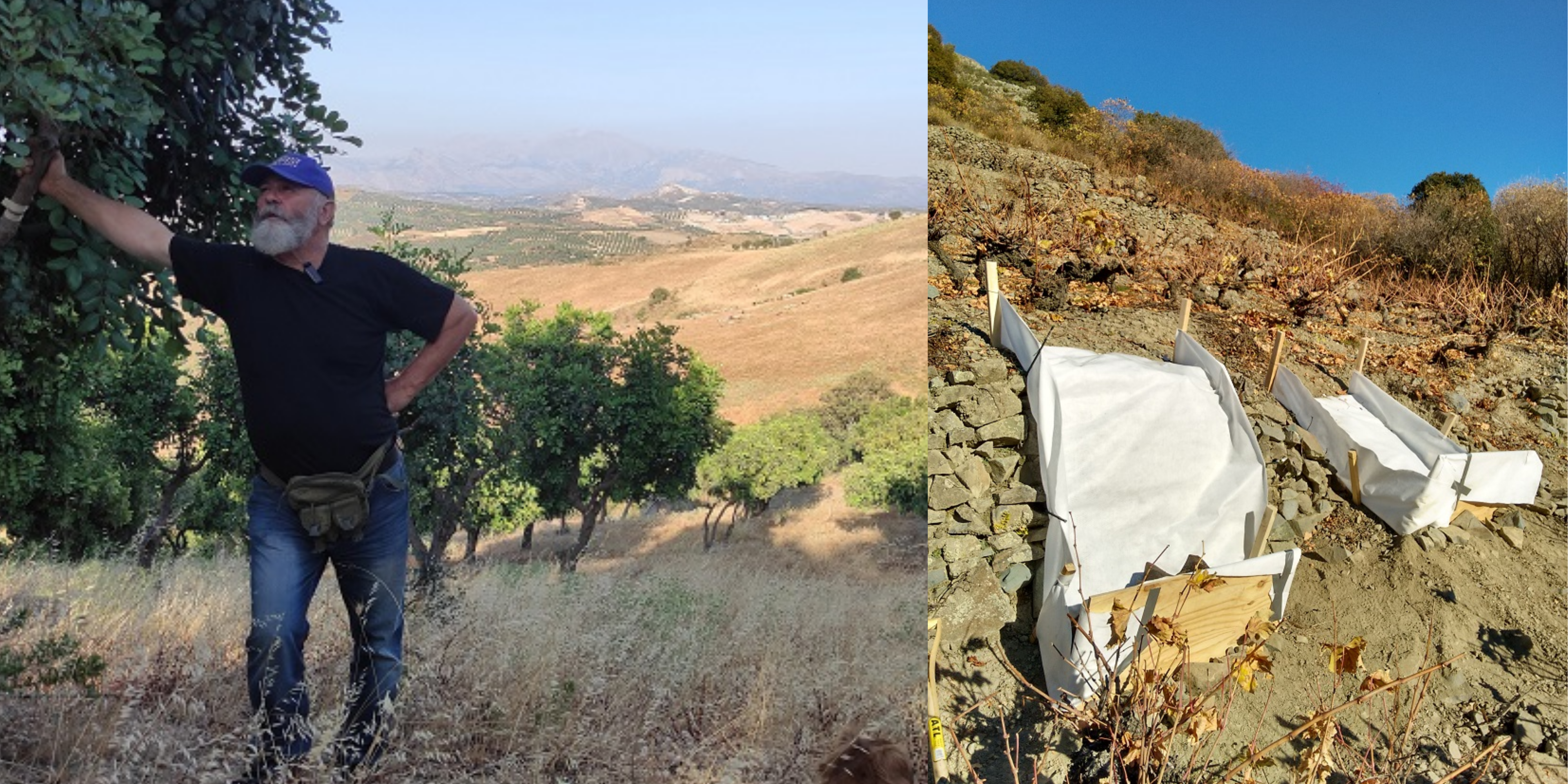The PRIMA REACT4MED Project, entitled “Inclusive Outscaling of Agro-ecosystem Restoration ACTions of the Mediterranean”, brings together an interdisciplinary team of researchers and professionals working to enhance Sustainable Land and Water Management to improve the livelihoods of Mediterranean communities. The REACT4MED Project, funded by the PRIMA Programme, consists of 11 partners (Universities, research institutes, and an Information Technology Company) from countries cooperating with PRIMA (Greece, Italy, Germany, Cyprus, Israel, Spain, Morocco, Turkey, and Egypt).
Every year, the Mediterranean land loses about 0.5 tons of fertile soil per hectare due to soil erosion, which is almost double the European average. At the same time, the water resources of the Mediterranean basin are under constant pressure, due to the limited rainfall and long dry periods but also due to anthropogenic causes, such as climate change, urbanization, population growth and resource overexploitation. This pressure, which inevitably leads the Mediterranean countries to a downward spiral of land degradation and desertification, is one of the single greatest risks to the conservation of local ecosystems and the livelihoods of the Mediterranean communities.
To address these risks, deeper scientific knowledge and better environmental monitoring are needed, so that scientists and decision makers can improve environmental assessments and propose effective sustainable land and water management measures. These measures may include well-established or innovative actions such as afforestation of marginal lands, dry stone walls in mountain areas, mulching to prevent erosion and conserve soil moisture, differentiated cultivation systems, integrated or biological management of soil fertility and smart farming. Nevertheless, the widespread adoption of such restoration actions requires harmonization with the social, economic and environmental conditions of each region.
The PRIMA Programme (Partnership for Research and Innovation in the Mediterranean Area) is a European Union Programme supported by Horizon 2020, focused on building research and innovation capacities, and devising innovative solutions addressing critical problems in the fields of water management and agro-alimentary systems in the Mediterranean.
The PRIMA REACT4MED Project is coordinated by the Hellenic Mediterranean University. In Cyprus, the team led by Ass. Prof. in Hydrology & Water Management, Adriana Bruggeman of The Cyprus Institute will work on land restoration measures in terraced landscapes. According to CyI Post-Doctoral Fellow in Hydrology and Land Management, Dr. Hakan Djuma, the Institute’s field research in Cyprus has shown that well-maintained dry-stone terraces can reduce soil erosion by nearly one fourth. During REACT4MED, project partners will work systematically on the widespread implementation of measures to enhance sustainable land and water management, to support increased agricultural productivity and accelerate and disseminate relevant technological innovation.
The partners of PRIMA REACT4MED held the Project’s Kickoff meeting between 20 and 23 June in Heraklion, Crete, Greece, with the participation of stakeholders from the local government and the local community. In Crete, degraded land was returned to productivity with forest tree and tree crop species, mainly carob trees. For more information about the Project, please contact CyI Associate Research Scientist in Water and Natural Resource Management Research and Economics, Dr. Christos Zoumides (c.zoumides@cyi.ac.cy) and the REACT4MED project (info@react4med.eu).
Website: react4med.eu
Source: The Cyprus Institute (https://bit.ly/3up3UaQ)
